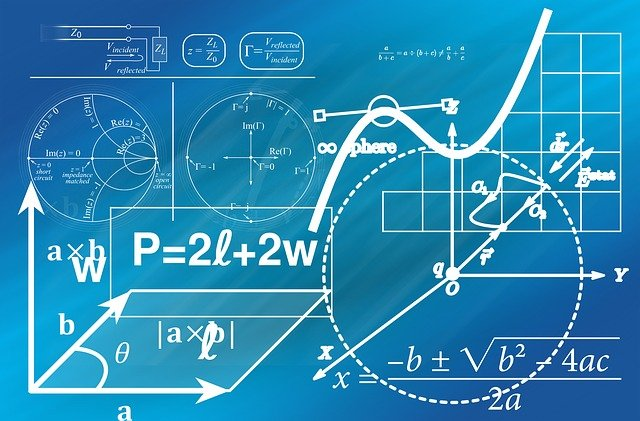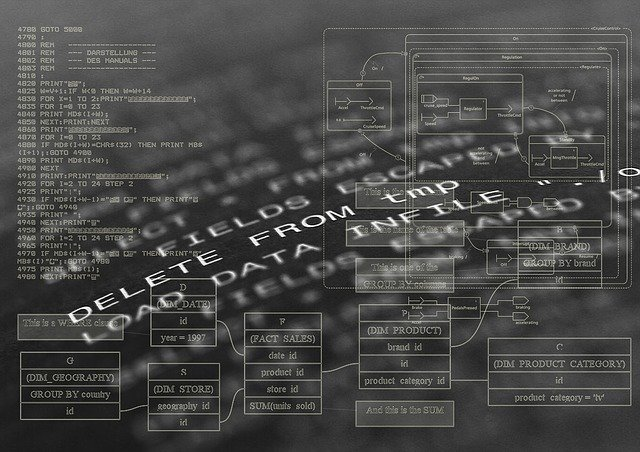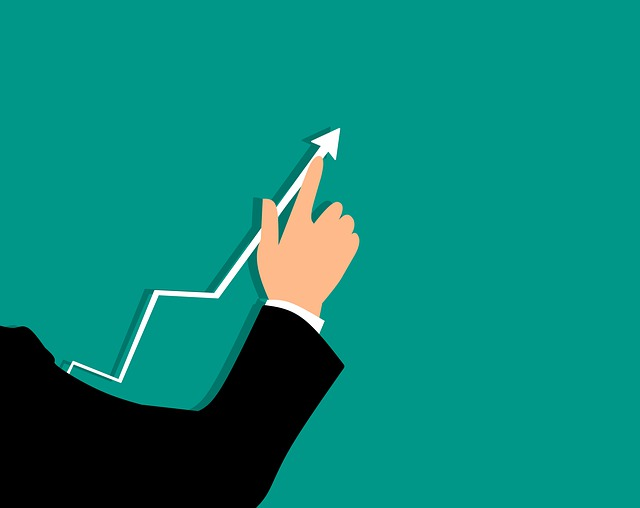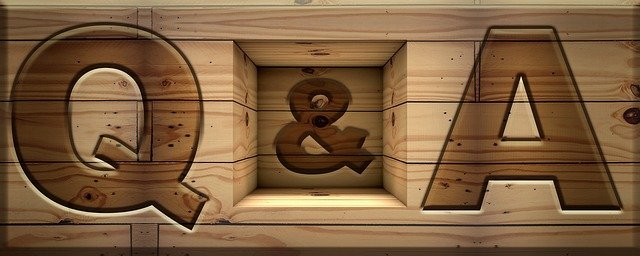If you have ever watched the TV series Billions about a a stock trading billionaire named Bobby Axelrod played Damian Lewis, you may recall him mentioning that a decline in returns on his hedge fund was due to a rise in the number of quant funds. If you’re interested in learning about the latest financial trends, then you may have heard the term “quant trading” or “algo trading” and wondered what they are and why should you care? In this blog post, we’ll break down what quantitative trading is, and explain why it’s becoming an increasingly popular way to invest. We’ll also explore some of the risks and rewards associated with this type of trading. So, if you’re ready to learn more, keep reading!

- What does quant mean?
- What are quant trading strategies?
- What math is used in quant trading?
- How do I start quantitative trading?
- What do I look for in a quantitative trading platform?
- What do I look for in a quant broker?
- Why should I try algo trading?
- Quantitative trading FAQ’s
What does quant mean?
Quant is short for quantitative. In finance, quantitative refers to the use of mathematical models to make investment decisions. This means that instead of making decisions based on gut feel or intuition, quant traders rely on data and computer models to find trading opportunities.
What does quant mean in trading?
Quant trading is a method used by financial professionals to make predictions about future price movements in securities and other assets. The approach uses mathematical models and algorithms to identify patterns and trends in data, with the goal of profiting from these predictions. While quantitative trading can be complex, it has become increasingly popular in today’s markets as computer technology has made it possible to process large amounts of data more quickly and efficiently. As a result, many investors are turning to quant strategies as a way to diversify their portfolios and optimize their returns.

How does quantitative trading work?
As we mentioned earlier, quant trading relies on mathematical models to spot trading opportunities. These models are based on historical data and market trends, and they are used to predict how prices will move in the future. When a quant trader believes that a security is about to rise or fall in price, they will buy or sell that security accordingly.
What are quant trading strategies?
There are many different types of quantitative trading strategies, but some of the most common include:
1. Mean reversion: This is a strategy that tries to take advantage of market conditions where prices have moved too far from their average. It involves buying assets when they are undervalued and selling them when they are overvalued.
2. Momentum: This is a strategy that tries to take advantage of the momentum of a market. It involves buying assets that are rising in price and selling them when they start to fall.
3. Arbitrage: This is a strategy that tries to exploit differences in prices between different markets. It involves buying an asset in one market and selling it in another market where the price is higher.
4. Trend following: This is a strategy that tries to profit from market trends. It involves buying assets that are rising in price and selling them when they start to fall.
5. Hedging: This is a strategy that is used to protect against losses in the market. It involves taking offsetting positions in different asset classes so that your overall risk is reduced.
Each of these strategies has its own strengths and weaknesses, and there is no single best strategy. It is important to experiment with different approaches and find the one that works best for you.

What are the benefits of quant trading?
There are several benefits associated with quant trading, including:
The ability to trade automatically: One of the biggest advantages of quantitative trading is that it can be done automatically. This means that trades can be executed faster and more efficiently, without the need for human input.
The ability to backtest strategies: Backtesting is a process of testing a trading strategy on historical data to see how it would have performed in the past. This is a valuable tool for quant traders, as it allows them to refine and improve their strategies before putting any real money at risk.
The ability to trade 24 hours a day: Quantitative trading can be done around the clock, as there is no need to wait for human traders to be available. This can be a valuable benefit for those who want to take advantage of global market opportunities.
What are the risks of quant trading?
As with any type of trading, there are risk associated with quantitative trading. Some of the risks include:
Model risk: This is the risk that a model used for quant trading may be inaccurate or not well suited for the current market conditions.
Data risk: This is the risk that the data used to develop a quantitative trading model may be inaccurate or out of date.
Liquidity risk: This is the risk that an asset may not be able to be sold quickly at a fair price. This can be a particular concern in markets with low liquidity.
Savvy Investors are also reading…
The Best Sites to Learn How the Markets Work
The Best Artificial Intelligence Investing Sites
The Best Supported Algorithm or Quant Trading Sites
What math is used in quant trading?
The algo math used in quantitative trading models can be quite complex. However, the basics usually include concepts such as:
- Probability theory: This is the branch of mathematics that deals with the likelihood of events occurring.
- Statistics: This is the branch of mathematics that deals with the collection and analysis of data.
- Linear algebra: This is a branch of mathematics that deals with the manipulation of vectors and matrices.
- Calculus: This is a branch of mathematics that deals with the calculation of rates of change.

How do I start quantitative trading?
If you’re interested in starting quantitative trading, there are a few things you need to do:
1. Choose a broker: The first step is to choose a broker that offers quantitative trading tools and services.
2. Open an account: Once you’ve chosen a broker, you’ll need to open an account and fund it with money that you’re willing to risk.
3. Learn the basics: Before you start trading, it’s important to learn the basics of quantitative trading. This includes concepts such as algo math, backtesting, and risk management.
4. Develop a strategy: Once you’ve learned the basics, you’ll need to develop a quantitative trading strategy. This will involve creating a model that can be used to make predictions about future market movements.
5. Backtest your strategy: Before you start trading with real money, it’s important to backtest your strategy. This will help you assess its accuracy and profitability.
6. Start trading: Once you’ve backtested your strategy and are confident in its accuracy, you can start trading with real money. Remember to always risk only what you’re willing to lose.
What are some common mistakes that new quants make?
One of the most common mistakes that new quants make is over-optimizing their trading strategies. This means that they focus too much on making their strategies as perfect as possible, without actually testing it in the real world. As a result, their quant trading strategy may work well in theory but may not actually be profitable in practice. Another mistake that new quants make is failing to diversify their portfolio. This means that they put all of their eggs in one basket and don’t diversify their investments across different asset classes. This can lead to big losses if the markets move against them.
What do I look for in a quantitative trading platform?
When choosing a quantitative trading platform, there are a few things you should look for:
1. Ease of use: The platform should be easy to learn, use and navigate.
2. Functionality: The platform should offer all the features and tools you need to trade effectively.
3. Reliability: The platform should be reliable and able to handle large amounts of data.
4. Customer support: The platform should offer customer support in case you have any problems.
5. Pricing: The platform should be reasonably priced and offer value for money.
6. Free trial: The platform should offer a free trial so that you can test it out before committing to a paid subscription.

What do I look for in a quant broker?
When choosing a quant broker, there are a few things you should look for:
- robustness of the platform
- ability to handle large amounts of data
- low latency
- good customer service
A quant broker should also have a good understanding of algorithms and quantitative trading strategies. They should be able to provide you with resources and advice on how to improve your trading performance.
Why should I try algo trading?
Quantitative trading is on the rise, and for good reason. By using computers to make decisions about when and how to trade stocks, investors can minimize their risk and maximize their profits. While this type of trading may seem daunting or confusing at first, it’s important to understand how it works in order to stay ahead of the curve. So what does all of this mean for you? If you’re looking for a way to invest your money that minimizes your risk while maximizing your potential profits, quantitative trading may be right for you. Are you ready to jump into the world of algo trading? If so, then we see our reviews of the best algo and quantitative trading platforms.

Quantitative trading FAQ’s
Can math predict the stock market?
Yes. Mathematical models can be used to make predictions about future market movements. However, it is important to remember that no model is perfect and that there is always some degree of risk involved.
Can quantifiable trading methods be used for ESG or sustainable investing?
Yes. Many sustainable investing strategies and trading opportunities are based on quantitative methods. For example, a strategy might use mathematical models to screen for companies that have low carbon emissions or that produce products with a low environmental impact. Then, the investor might use these same models to predict which of these companies are likely to outperform the market in the future.
What is the best time frame to be a quantitative trader?
The time frame you use will depend on your trading strategy. Some strategies might be designed to take advantage of short-term market movements, while others might aim to capture longer-term trends.
How do I start quant trading?
The best way to start quantitative trading is to first learn the basics. This includes concepts such as algo math, backtesting, and risk management. Once you’ve learned the basics, you can then begin to develop your own quantitative strategies. It may seem overwhelming at first, but there are a few companies who will support you through the process and help you accelerate your learning in an experienced environment.
What is the difference between algo trading and quantitative trading?
Quantitative trading is a type of algo trading. Algorithmic trading is a broader term that includes any type of trading that uses computer-generated models to make decisions.
What is the difference between quant trading and AI trading?
AI trading is a type of trading that uses artificial intelligence to make decisions. Quant traders use mathematical models to make predictions about future market movements. The biggest difference between these two types of trading is that AI traders rely on computers to make decisions, while quant traders use mathematical models.
What is the difference between day trading and quant trading?
Quant trading is a type of day trading. Day traders seek to make profits by buying and selling stocks within the same day. Quant traders use mathematical models to make predictions about future market movements. The biggest difference between these two types of trading is that day traders rely on their own intuition and experience to make decisions, while quant traders use mathematical models.
What is the best quant trading software?
There is no definitive answer to this question as it depends on your individual needs and preferences. But you can read our reviews of the best quant and algo trade platforms here.
Do I need to be a math genius to trade quantitatively?
No. While it helps to have a strong understanding of mathematics, you don’t need to be a genius to trade quantitatively. There are many software platforms and services that can help you with the complex calculations involved.
Is quantitative trading risky?
Yes. Any form of trading carries a risk of loss. However, if you manage your risks properly, you can minimize your losses and maximize your profits. But with the proper support the learning curve will be short.
What does a quant trader do?
A quant trader uses mathematical models to make predictions about future market movements. They then use this information to make trades that will minimize their risk and maximize their profits.
What is the best quant trading book?
There is no definitive answer to this question as different people have different preferences. However, some popular options include “Algorithmic Trading: Winning Strategies and Their Rationale” by Ernie Chan and “Quantitative Trading: How to Build Your Own Algorithmic Business” by Ernest P. Chan. But keep in mind that building mathematical and statistical models from scratch will take substantial computer programming expertise when there are already proven and cost effective options ready to go.
How much do quant traders make?
This depends on a number of factors, including the trader’s level of experience, the size of their account, the markets they trade, and the amount of risk they are willing to take. Generally speaking, experienced quant traders can make a lot of money.
How do I start quantitative trading?
To get started, you’ll need to choose a trading platform or service and open an account. Then, you’ll need to learn about the different types of quantitative trading strategies and how to use them. Finally, you’ll need to test your strategies with a demo account before putting any real money on the line. There are several online platforms available to help you get up and going at your own speed.
Can I do quant trading on my own?
Yes. You can learn about the different types of quantitative trading strategies and how to use them. Then, you’ll need to test your strategies with a demo account before putting any real money on the line. There are a number of platforms online available to help you get up and be successful.
What is the future of quant trading?
The future of quant trading is difficult to predict. However, as technology advances, it is likely that quant traders will have access to more data and better tools to help them make predictions about future market movements. This could lead to even more profitable trades and more successful traders. But there is one challenge that all traders will face in the future: the increasing competition. As more people learn about and begin to use quantitative trading strategies, the markets will become more difficult to profit from. This means that traders will need to be even more skilled and experienced to be successful.
Who invented quant trading?
This type of trading was first developed by floor traders on the Chicago Mercantile Exchange in the 1970s. They used simple mathematical models to predict future price movements and make profitable trades. However, it wasn’t until the 1990s that quant trading really took off. This was thanks to the development of computerized trading systems, which made it possible to execute complex trades quickly and efficiently. Nowadays, quant trading is used by a variety of different traders, including hedge fund managers, institutional investors, investment firms and even individual investors. In a dynamic market, profitable trade is about the trading frequency. It was proven that having an execution mechanism with automated systems will give you potentially limitless data points as a part of your market strategy is good for the pocketbook.
Is it too late to become a quant?
It is never too late to start learning about and using quantitative trading strategies. However, it is important to remember that the markets are constantly changing and evolving. This means that traders need to be constantly learning and keeping up with the latest changes in order to be successful. There is no one-size-fits-all answer to this question; it really depends on the individual’s level of commitment and willingness to learn.
How many hours do quants work?
This varies depending on the trader, but most quants work long hours. This is because they need to constantly monitor the markets and make adjustments to their trading strategies. Some quants may even work around the clock to take advantage of market movements in different time zones.
Can I combine quant trading with AI trading?
Yes. In fact, many quant traders are now using artificial intelligence (AI) to help them make predictions about future market movements. AI can provide traders with a huge amount of data that would be impossible to process manually. This data can then be used to develop and test trading strategies.
What qualifications do I need to be a quant?
There are no specific qualifications required to be a quant. However, most quants have a background in mathematics, computer science, or engineering. This is because quantitative high frequency trading relies heavily on complex mathematical models and computer algorithms.
How much money do I need to start quant trading?
This varies depending on the platform or service you use. Some platforms allow you to start trading with as little as $500, while others may require a minimum deposit of $5,000 or more.
Can I lose all my money quant trading?
Yes. Quantitative trading is a high-risk investment activity. This means that you can lose all of your capital if the market moves against your predictions. However, by carefully managing your risk and using stop-loss orders, you can limit your losses and protect your capital.
How long does it take to learn algorithmic trading?
There is no one-size-fits-all answer to this question; it really depends on the individual’s level of commitment and willingness to learn. However, most quants spend a significant amount of time learning about different types of quantitative trading strategies and how to use them effectively. But there are platforms that get you started and help you learn while making investments. This will shorten the learning, let you trade with someone over-the-shoulder and get you up to speed faster than trying to learn from scratch. Experience is the best teacher.
Do quantitative traders use technical analysis on financial markets?
Some quants may use technical analysis to help them make predictions about future market movements. However, technical analysis is not the only tool that quants use. They may also use fundamental analysis, quantitative models, and computer algorithms.
The bottom line on quantitative trading strategies
Quantitative trading is a type of trading that uses mathematical models to make predictions about future market movements. It is a popular technique among hedge fund managers, institutional investors, and even individual investors. Quantitative trading can be used to trade a variety of different asset classes, including stocks, bonds, commodities, and currencies. However, it is important to remember that the markets are constantly changing and evolving. This means that traders need to be constantly learning and keeping up with the latest changes in order to be successful.
Terms & Definitions
- Quant trader: A person who uses quantitative methods to trade securities. Quantitative methods can include mathematical models and computer programs that automatically buy and sell securities based on pre-determined rules.
- Quantitative trading: The use of mathematical models and computer programs to make buy and sell decisions for securities. This is also known as algorithmic trading.
- Algo trading vs quant trading: Algo trading is the use of algorithms to make trading decisions. Quant trading is the use of quantitative methods, which can include mathematical models and computer programs, to make buy and sell decisions for securities.
- Hft quant: High-frequency trader who relies on quantitative methods to make rapid buy and sell decisions in securities.
- Junior quantitative trader jobs: Jobs in which the main responsibility is to use quantitative methods to trade securities.
You should also read…
What is Diversity Equity and Inclusion?
Copy Trading: The Wisdom of the Crowd

Dean Emerick is a curator on sustainability issues with ESG The Report, an online resource for SMEs and Investment professionals focusing on ESG principles. Their primary goal is to help middle-market companies automate Impact Reporting with ESG Software. Leveraging the power of AI, machine learning, and AWS to transition to a sustainable business model. Serving clients in the United States, Canada, UK, Europe, and the global community. If you want to get started, don’t forget to Get the Checklist! ✅
